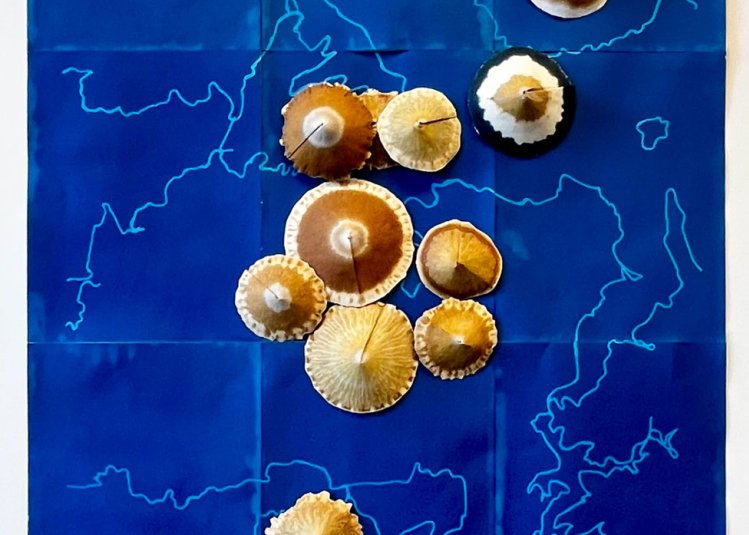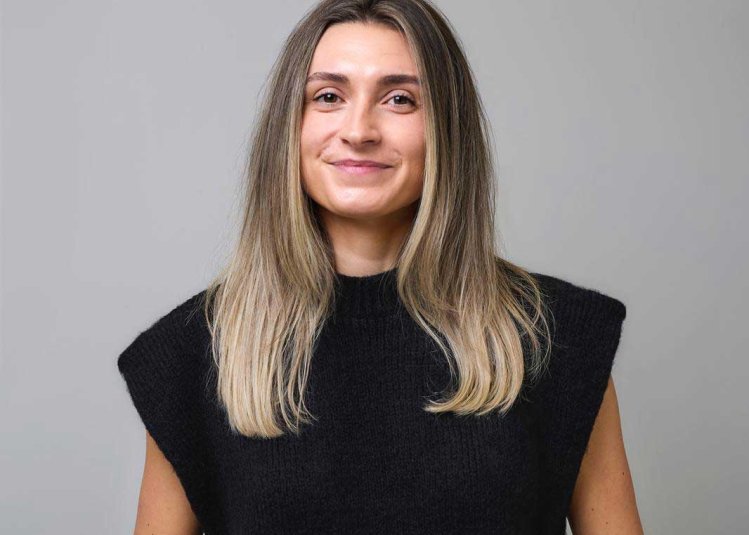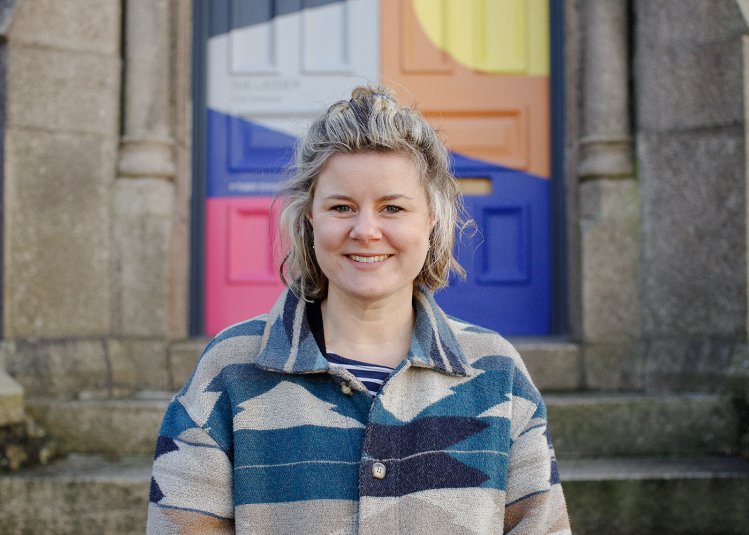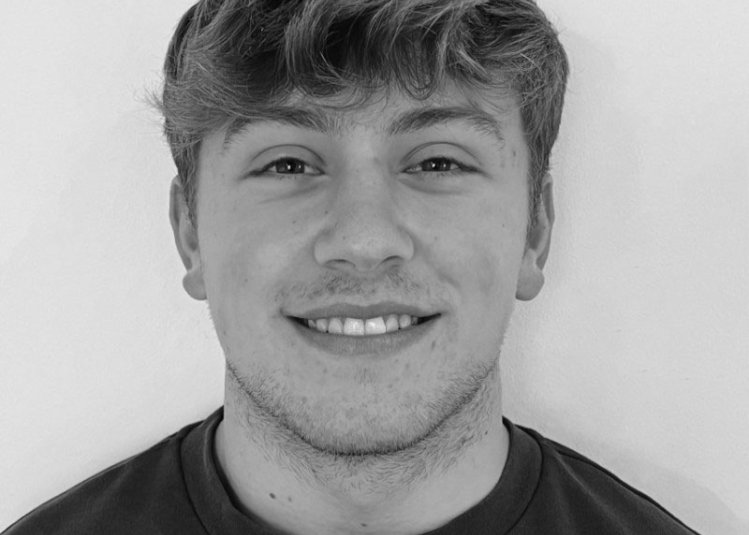Broken sleep, books & breaking down barriers
13 December 2021
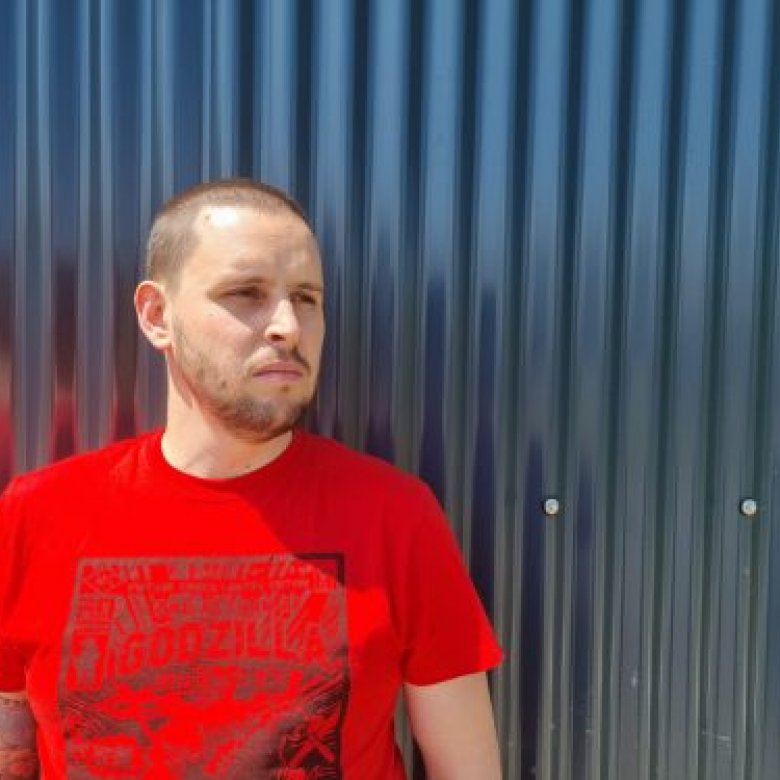
We recently caught up with BA(Hons) English & Creative Writing graduate Aaron Kent to chat poetry, overcoming obstacles, tackling health issues and making time for your passion.
Aaron Kent is a working-class writer, poet and director of award-winning publishing house Broken Sleep Books. The press champions community action, inclusivity and innovation – and includes Gillian Clarke (National Poet of Wales, 2008-2016) and The Guardian First Book Award winner Andrew McMillan among its authors.
Aaron’s road to success has not been without its hurdles. From accidently discovering poetry as a working-class teenager in Cornwall, becoming a submariner in the Navy and finding his voice at Falmouth University, to struggling to manage a work life balance and suffering serious health issues, it’s been quite the journey.
Discovering the pull of poetry
It all began with a childhood crush, and her poetry-writing boyfriend.
“There was this girl on a school trip”, Aaron recalls, smiling. “We were going to Austria. Her boyfriend wanted to give her something to take with her, so he wrote her a poem, and she absolutely loved it. So, naturally, I thought that I’d give writing a poem a go.”
After being brave enough to hand the poem over, Aaron was dealt a crushing blow in return – “The first day back at school, she passed the poem back to me. It had been edited by her boyfriend! To be fair to him, his criticism was actually quite constructive.”
The incident may not have ignited a teenage romance, but it inadvertently lit a fire under Aaron’s passion for poetry.
Completing A-Levels under water
Aaron later returned to education in an unexpected way – with the Royal Navy.
“The recession had just hit”, Aaron remembers. “So, I decided to become a submariner with the Royal Navy. When you join, they ask if you want to study for academic qualifications, just in case something happens during your time. Most people choose not to do them, but I decided to take the lessons.”
And it was fortunate that he did. Two years later, Aaron was medically discharged for an extreme sleeping disorder; a condition that he still manages to this day.
By the time Aaron was discharged, he’d already finished his studies with the Navy and had racked up enough UCAS points to apply for university – even if some of the points came from unusual places.
“I became a ‘Marksman for Life’ with the Royal Navy after gaining my marksman badge three years in a row”, Aaron told us. “Somehow, that was worth UCAS points!”
There were late nights where I was writing poems and short stories that absolutely sucked, and that was fine. Sometimes it’s not about where the work will end up...
Overcoming obstacles and finding his voice
“When I was growing up – and I think this is a common theme for working class people everywhere – you’d never even consider the possibility that the arts could be something you can make a career out of,” says Aaron. In fact, he was the first person in his family’s history to attend university.
While his achievement was cause for celebration, Aaron remembers feeling nervous at the start of his undergraduate degree.
“I did my first year of university at the age of 22. There were people four years younger than me who had a better grounding in the subject – but none of that ended up mattering because the support I received from my teachers and my peers was huge.
“By the end of the first year I got Firsts on a couple of my essays and was excited about going into the next year. By the time I got to my final year, the thought of writing a dissertation had become something that I was excited to do.”
While his improved grades made him more confident, it was the development of Aaron’s artistic voice that proved to be truly significant.
“Before, I was writing poetry in a vacuum”, Aaron told us. “But at Falmouth I read different styles and genres of poetry. I examined the different aspects. I figured out what I liked, what I hated, what I thought was cool but didn’t really understand, and what I understood but didn’t think was very interesting.
“That all helped me form an idea of what I wanted to do with my own writing.”
There's a myth that talent will get you somewhere. Talent is something that you might possess a bit of, but you have to nurture it.
In 2020, Aaron had just started his third year as an English and Drama teacher. He’d also just published his fourth poetry pamphlet of the year, his poetry press Broken Sleep Books was shortlisted for the prestigious Michael Marks Publishers’ Award (which it went on to win), and his wife had given birth to their second child.
Then, out of nowhere, Aaron collapsed while teaching. He had suffered a brain haemorrhage and a stroke, and was lucky to have survived.
After spending three months in rehabilitation, the reasons behind his injury became clear. “I was overloading myself”, Aaron reflects. Between teaching, writing his own poetry, running Broken Sleep Books and looking after two young children, he was spent.
“I don’t want to push myself to nearly dying – my children losing their father, my wife losing her husband. Broken Sleep Books had become profitable enough to cover my teaching salary, so I decided to focus on that.”
Getting back on track
Since his recovery, Aaron has continued to grow as an artist. Aaron has developed a new writing technique for his poetry, with poetry journals picking up several works.
As Aaron explains, “The brain haemorrhage brought my insomnia back tenfold, so I’m on these really hardcore sleeping tablets now. Just as the sleeping tablets start to kick in, and I’m in that hypnogogic state between being awake and asleep, I start to write a poem. What I scrawl down are the thoughts that appear in my subconscious.
“The next day I wake up and edit it into a poem. It’s a conscious editing of the subconscious, and I combine those two ideas together. It’s been met with lots of interest so far, which has been encouraging to see.”
Advice for aspiring writers
So, what advice does he have for the aspiring writers at Falmouth?
“Read. Read as widely as possible. If you don’t like something, question why: try and pin it down. Cover a wide range of genres and styles and try them all out in your own writing.
“There’s a myth that talent will get you somewhere. Talent is something that you might possess a bit of, but you have to nurture it. The poems that I write don’t just magically appear via osmosis, it takes a lot of work.
“There were late nights where I was writing poems and short stories that absolutely sucked, and that was fine. Sometimes it’s not about where the work will end up, sometimes it’s about ‘what did I learn about myself in writing it?’ ‘What did I improve on while I wrote it?’
“And reach out to people – they’re much more supportive than you think they’ll be. If someone is reading this article and feels like it doesn’t address their questions, they can contact me. I’ll be very happy to respond to anyone who reaches out.”
